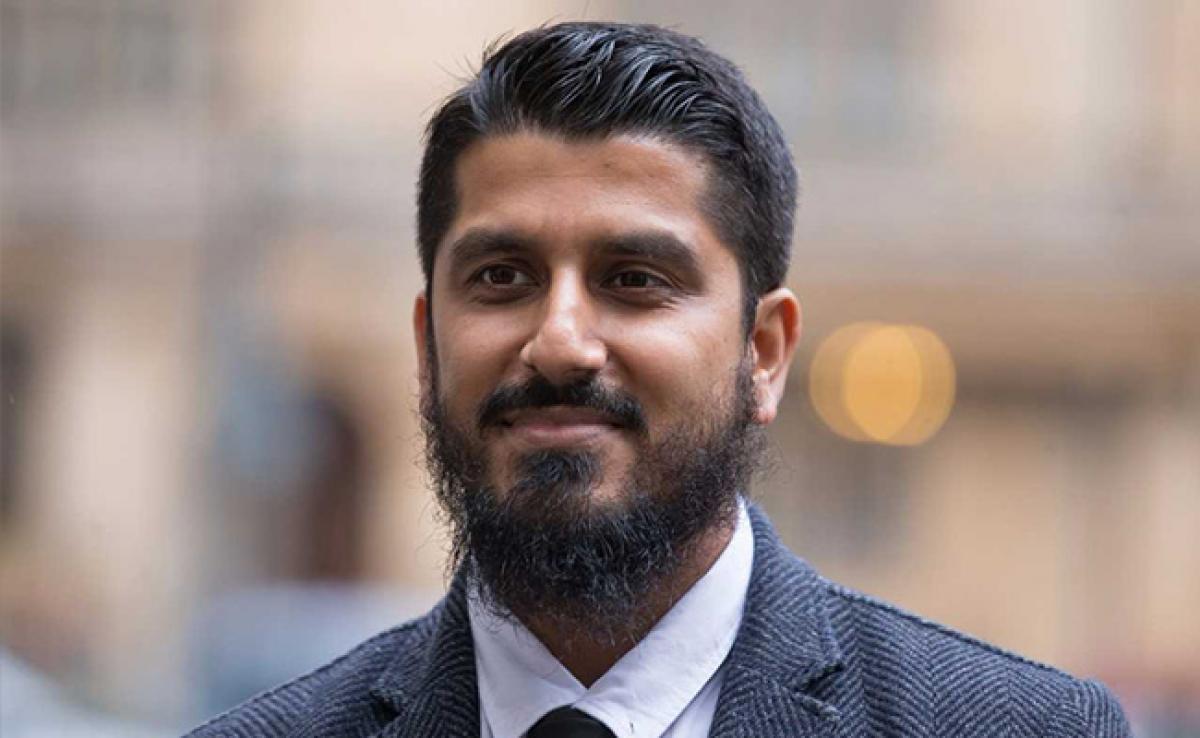Live
- Must-Watch OTT Originals in 2024: The Year’s Best Shows and Movies
- 40 Indian startups secure over $787 mn in a week
- India now formidable force on chess board
- Raghavendra Mutt pontiff visits Tirumala
- Whistleblower of OpenAI found dead in US apartment
- Trump’s US-first policy & India’s strategic latitude
- Chandrababu pays tribute to Potti Sriramulu and Sardar Vallabhbhai Patel
- India may miss TB elimination target
- Revolutionizing Women’s Health: The Era of AI
- Govt bill explains plan for ONOE
Just In

A man who refused to provide passwords to his electronic devices when stopped by British police was found guilty under terrorism laws at a court in London on Monday, in a case that campaigners say threatens personal privacy.
A man who refused to provide passwords to his electronic devices when stopped by British police was found guilty under terrorism laws at a court in London on Monday, in a case that campaigners say threatens personal privacy.
Muhammad Rabbani, 36, the international director of campaign group CAGE was found guilty of willfully obstructing or seeking to frustrate an examination or search, and given a conditional 12-month discharge, and was ordered to pay a 620 pound ($830) fine.
CAGE is an advocacy group which campaigns against the impact of counter-terrorism policies, and came to international attention over its links to Jihadi John, a British Islamic militant, before he went to Syria.
Rabbani said he was returning from a wedding in Qatar when he was stopped at Heathrow last November. Police seized his phone and computer, and demanded the passwords for the devices.
Rabbani said that he had not provided the passwords as he wanted to protect the privacy of a client who he was working with on an anti-torture case.
However, judge Emma Arbuthnot found that Rabbani was lawfully required to provide the passwords.
Rabbani said he would appeal the decision.
He was held under Schedule 7 of the Terrorism Act 2000, which was used to detain David Miranda, the partner of the journalist who brought leaks from former US spy agency contractor Edward Snowden to world attention in 2013.
Rabbani said that the law poses a threat to personal privacy, and told reporters and supporters outside the court that the decision "highlights the absurdity of the Schedule 7 law."
"They accept that at no point was I under suspicion, and that ultimately this was a matter of having been profiled," he said, referring to the judge and prosecution.
"There are important implications for our collective privacy, as Schedule 7 acts as a digital strip-search."
But the police welcomed the verdict.
"Today's verdict is an important one. It's crucial that police are able to use the legislation that exists to help keep the public safe," said Commander Dean Haydon, head of the Met Police Counter Terrorism Command, in a statement, adding that Schedule 7 was a vital tool in the fight against terrorism.
"The Met has retained Rabbani's phone and laptop and is continuing its efforts to examine the contents."

© 2024 Hyderabad Media House Limited/The Hans India. All rights reserved. Powered by hocalwire.com







